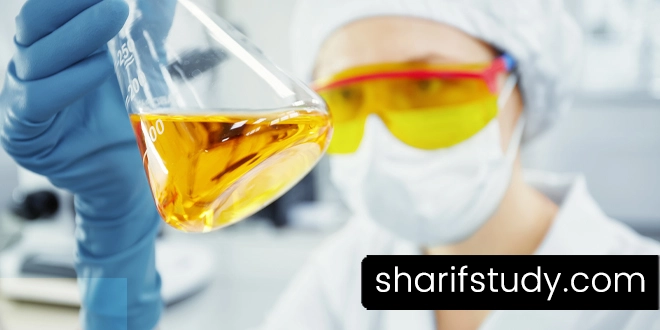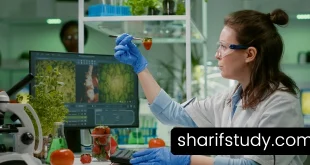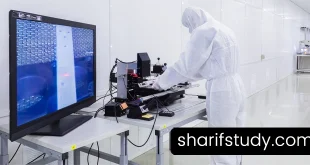During the Sixth Malaysian Five-Year Plan, the School of Chemical Engineering, University Science Malaysia was established on May 1, 1992. (1991-1995).
The establishment was created to meet the growing demand for highly competent professional chemical engineers in the nation’s growing chemical process industries, as well as to investigate various fields of chemical engineering research.
In 1993, 43 undergraduates enrolled in the four-year chemical engineering undergraduate program as a result of this. The school was then located at the Perak Branch Campus in Tronoh.
Due to the country’s urgent need for trained engineers, the four-year undergraduate program was reduced to three years in 1996. However, the four-year program was reintroduced into the engineering study system in the year 2000.
In May 2001, the school relocated to the new and modern USM Engineering Campus at Nibong Tebal, about 50 kilometers from the USM Main Campus on Penang Island.
Bachelor of Chemical Engineering
The Chemical Engineering program is designed to meet the standards and recommendations established by the Engineering Accreditation Council (AEC) of the Malaysian Board of Engineers.
The school provides a four-year curriculum leading to the granting of a Bachelor of Engineering (Chemical Engineering) with Honors, which leads to the following specialized fields:
- Separation Process Engineering and Catalysis
- Process Control Engineering
- Bio-process Engineering and Environment
Bachelor of chemical engineering tuition fees for academic year 2023-2024 is 22,500 USD.
Program Structure
First Year
- Engineering Mechanics
- Engineering Calculus
- Organic Chemistry
- Engineering Materials
- Chemical Engineering Drawing
- Engineering Practice
- Electrical Technology
- Advanced Engineering Calculus
- Analytical Chemistry
- Mass and Energy Balances
- Material Science for Chemical Engineering
Second Year
- Fluid Flow for Chemical Engineering
- Chemical Engineering Thermodynamics
- Mathematical Methods for Chemical Engineering
- Biotechnology for Engineers
- Environmental Engineering and Management
- Engineers in Society
- Process Heat Transfer
- Mass Transfer
- Computer Programming and Applications
- Chemical Engineering Laboratory I
Third Year
- Separation Processes
- Chemical Reaction Engineering
- Process Dynamics and Control
- Chemical Engineering Laboratory II
- Project Management
- Transport Phenomena
- Reactor Design and Analysis
- Plant Safety
- Chemical Engineering Laboratory III
- Nanomaterials in Chemical Engineering
- Oleochemical Processing
- Renewable and Alternative Energies
- Biochemical Engineering
- Process Intensification in Chemical Processes
- Downstream Processing for Bioproducts
Fourth Year
- Process Design and Analysis
- Engineering Economics
- Final Year Project
- Plant Design and Operation
- Membrane Science and Technology
- Advanced Control Systems for Industrial Processes
- Biorefinery Engineering
- Advanced Process Safety Engineering
- Wastewater Treatment Engineering
- Petroleum and Gas Processing Engineering
Master in Chemical Engineering/ Ph.D. in Chemical Engineering
When it comes to postgraduate research, the School of Chemical Engineering at University Science Malaysia is one of the most active and productive schools in the university.
This school’s researchers have received numerous awards and recognitions from national and international organizations.
The School has several programs that offer postgraduate research opportunities in a wide range of chemical engineering topics.
It has consistently attracted research students from academia, industries, research institutions, and government departments both locally and internationally.
The School of Chemical Engineering offers master’s and doctorate (by research) programs leading to the degrees of Master of Science (MSc.) and Doctor of Philosophy (PhD), respectively.
The programs are led by highly qualified and experienced academicians with extensive technical knowledge in their respective fields.
Postgraduate studies may be pursued full-time or part-time. In generally, the studies will involve literature review, proposal presentation, planning and conducting of experimental works, modelling and simulation works, preparation and submission of research articles and finally thesis submission for examination.
Throughout the study, a postgraduate student will be closely guided by a main supervisor and assisted by co-supervisor. Master of chemical engineering tuition fees for academic year 2023-2024 is 4,000 USD.
Research Areas
The School has cutting-edge facilities to facilitate research in the following areas:
- Nanotechnology: Carbon Nanotube, Nanocarbon Composite, Activated Carbon, Carbon Molecular Sieve, Magnetic Nanoparticle
- Catalysis and Chemical Reaction Engineering: Chemical Reaction Engineering, Zeolite and Environmental Catalysis, Nanoporous Materials, Membrane Reactors, Fuel Technology, Renewable Energy, Electrochemical Reaction etc.
- Biochemical/Bioprocessing: Enzyme Technology (Biocatalyst), Fermentation Technology and Modeling, algae, Tissue Culture, Biotransformation, Biological Products Recovery, Bioreactor Design and Analysis and Biofuel Production, Phythochemistry, Biosensor, Tissue Engineering, Regenerative Medicine
- Separation Processes: Membrane Technology, Adsorption, Filtration, Ion-exchange, Diffusion and Mass Transfer, Solvent Extraction (including molten salts and supercritical fluids), Electrophoresis, Electrodialysis, Reactive Distillation, Pervaporation, Zeolite Membrane for Gas Separation, Electrocoagulation
- Treatment of Solid, Gas, Wastewater and Toxic Materials: Membrane Technology, Solidification/stabilization, Biosorption, Adsorption, Combustion, Pyrolysis, Nutrient Removal and Recovery, Bioremediation, NOx Removal from diesel exhaust, VOC Removal using Catalytic Combustion and SOx removal from Flue Gas using adsorbent from waste materials
- Advanced Process Control: Process Modelling, Simulation and Optimization, Process Intensification, Fuzzy Logic and Neural Networks
- Plant Safety and Hazard Analysis: Process Safety and Integration, Computational Fluid Dynamics, Gas sensor
- Petroleum and Gas Processing: Natural gas utilization in the production of chemicals, Ethylene production from Methane, Hydro-cracking of residual oil, Gas to Liquid Technology (GTL), Gas Purification
- Petroleum and Gas Processing: Composting, Renewable Energy, Green Technology and Organic Acid Production
FAQs
1.What are the key specializations available within the Chemical Engineering program at USM?
- USM’s Chemical Engineering program offers specializations in areas such as process engineering, environmental engineering, materials engineering, bioprocess engineering, and petroleum engineering, allowing students to focus on their areas of interest.
2. What opportunities does USM provide for hands-on learning and practical experience in Chemical Engineering?
- USM offers extensive opportunities for hands-on learning through well-equipped laboratories, industrial training, research projects, and industry collaborations, allowing students to apply theoretical knowledge to real-world engineering challenges.
3. How does USM’s Chemical Engineering program prepare graduates for careers in the industry?
- USM provides a robust foundation in chemical engineering principles and practical skills through industry-relevant coursework, internships, and research projects, ensuring graduates are well-prepared for diverse careers in sectors such as petrochemicals, pharmaceuticals, and environmental consulting.
 SharifStudy Best way to Study in Malaysia
SharifStudy Best way to Study in Malaysia





